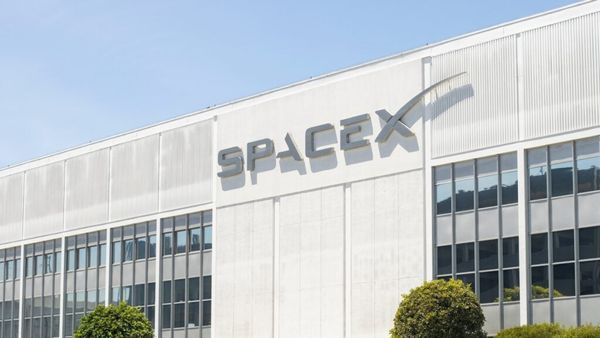Buy-now pay-later companies like Affirm Holdings brought much-needed competition to the consumer lending space by taking on credit card issuers. But competition is also fierce among BNPL providers, a headwind for Affirm stock, which nonetheless has gained 28% in 2024.
Affirm Chief Executive Max Levchin, who founded the company in 2012, is now taking on Europe's BNPL powerhouse Klarna in the U.K., its first European market.
Meanwhile, Klarna competes in the U.S. market, though Affirm is well-established here with a stellar list of online partners. They include Amazon.com, Walmart, Shopify and most recently iPhone maker Apple.
With BNPL options, consumers pay off purchases in monthly or biweekly installments, either with low interest or none at all. Affirm estimates that BNPL volume as a percentage of e-commerce in the U.S. reached about 7.4% in the September quarter. Further, Affirm had about one-third market share of the volume.
Affirm Stock: Taking On Klarna
Despite the growing competition, Levchin expressed confidence about Affirm's market position.
"We are the largest (BNPL player) by revenue by a very wide margin," Levchin told Investor's Business Daily. "We make more money than everybody else combined. But there's definitely healthy competition in this space."
The U.K. market appears to be the start of Affirm's international expansion.
"In my (shareholder) letter, I said new 'geographies', which is about as far as I'll go," Levchin said. "So it's plural, which means that we're not going to stop in the U.K. We're not putting a timeline just yet, but we did a lot of work to be multinational, multicurrency, multilanguage. So it's the beginning, not the end, of international expansion."
Aside from Klarna, San Francisco-based Affirm also competes versus Block's Afterpay, PayPal Holdings, Sezzle and many other BNPL providers. Many top credit-card issuers, such as Chase, now offer their own version of BNPL creating more competition.
Scale is something Affirm can leverage. The company's underwriting technology for consumer transactions aims to responsibly extend access to credit to as many people as possible while maintaining its targeted unit economics.
Affirm's gross merchandise volume – the value of all transactions on the company's platform, minus refunds – rose 35% during the quarter ended Sept. 30 from a year earlier, to $7.6 billion.
In fiscal 2025, Wall Street analysts estimate that Affirm's gross merchandise volume from retail transactions will top $34.5 billion. Also, the Affirm debit card now has 1.4 million users, opening up new opportunities in the consumer lending market.
Affirm Stock: Plenty 'Irons In The Fire'
"Part of being at our scale is that we have lots of irons in the fire, and we're pretty good about a lot of them, just like U.K. will be a big deal right now," Levchin said. "The Affirm Card is just firing at all pistons and adding more and more consumers. The ones that pick up our card are ultra engaged. There's a different level of spend and frequency."
The Affirm debit card links to consumer checking accounts at banks or Affirm's Money Account. It allows consumers to pay for purchases right away or request to pay for purchases over time.
Analysts expect the debit card to help Affirm further penetrate in-store shopping.
Competitors like PayPal and Block's Square are also expanding consumer financial services. Levchin was one of the original cofounders of PayPal, where he served as the chief technology officer until its acquisition by eBay in 2002. EBay spun off PayPal in 2015.
"Our consumers come to us for transparency, sense of control, ability to understand exactly what's going to happen to their purchase in terms of paying for it over time," Levchin said.
He added that underwriting technology is key. Affirm provides loans for six weeks, 3-, 6-, 9- and 12 months and in some cases 48 months.
"The reason we can do this is because we actually are very, very good and continuously work on improving our ability to underwrite," Levchin said. "We have a major capital markets effort that also is at a huge scale at this point, doing 10s of billions of (GMV) annually."
Affirm Stock: Artificial Intelligence
Affirm has used machine learning in underwriting since its founding. Many companies are now exploring "generative" AI, which creates chatbots and different forms of content.
"Underwriting is not something we do with gen AI," Levchin said. "All of our underwriting is built entirely with machine learning. The big difference in my mind, between the two is machine learning is deterministic. If you feed the model the same inputs, you will get the same outputs every single time. That's really important for explainability and observability of underwriting performance. Underwriting and loan decisioning is very, very tightly regulated."
"On the other hand, we use Gen AI quite successfully in a couple of places today, and we are seeing a lot of opportunities to do more. The big consumer facing use case is we have a chatbot and a chat interface for our customer support."
For its part, Klarna has touted how it uses gen AI in sales and marketing, especially to lower costs.
Wells Fargo analyst Andrew Bauch said in a report: "We've consistently believed that Affirm's credit sophistication rivals any consumer
lender in the marketplace."
Meanwhile, rival Square has made Bitcoin a big part of its merchant and consumer strategy. PayPal has dabbled in cryptocurrency as well.
Bitcoin has rallied to record highs in the wake of President-elect Donald Trump's victory. Trump was pro-crypto during his campaign. He is expected to offer a friendly regulatory regime for digital assets.
CEO Levchin: No Crypto Plans
Still, Levchin doesn't expect Affirm to jump into crypto.
"Transferring crypto from consumers to merchants is an interesting business," he said. "It's just not our business. So I don't see it as a major piece of our strategy, but we are fairly nimble with how we think about our strategy. I wouldn't be completely shocked if we felt a similarly clever way of using it. It's just not a thing that's been in demand for our customers right now."
In fiscal Q1, active users of BNPL services rose 15% to 19.5 million. Affirm fiscal Q1 revenue jumped 41%, to $698.5 million.
The new partnership with Apple is a wild card for Affirm stock since the deal is not exclusive.
"Recently, Apple added additional BNPL partners to Apple Pay, although Affirm was not expecting any material contribution fiscal 2025 we will continue to monitor the competitive landscape," said Deutsche Bank analyst Bryan Keane in a report.
Also, Affirm has stated that it expects "to achieve operating income profitability on a GAAP basis in fiscal Q4 2025."
Affirm gets most of its revenue from transaction fees paid by online retailers. In addition, Affirm gets about one-third of its revenue from interest income paid by consumers.
More BNPL Regulation Coming?
Consumers typically use BNPL for big purchases. During the Covid emergency, Affirm's biggest customer was fitness gear maker Peloton Interactive. Consumers also typically buy furniture, electronics and household appliances.
But the BNPL market is evolving as consumer use the BNPL option for smaller purchases.
Susquehanna analyst James Friedman in an email said "Klarna doesn't really offer monthly installment plans. It's more transaction based. By contrast, Affirm's business leans more into monthly installments.
He added that Klarna's average order value is typically under $100, while Affirm's is over $280. So Klarna captures more every day spend, he said.
Under the Biden administration, the Consumer Financial Protection Bureau had signaled tougher regulation of BNPL services. Levchin says Affirm has been in talks with regulators for many years.
"We are in constant conversation with them. It is not a new development. Long ago we had to make investments in our team and technology and tools to make sure we are compliant. So it's not a new expense or a sort of sudden thing for us to contend with."
Follow Reinhardt Krause on Twitter @reinhardtk_tech for updates on artificial intelligence, cybersecurity and cloud computing.







